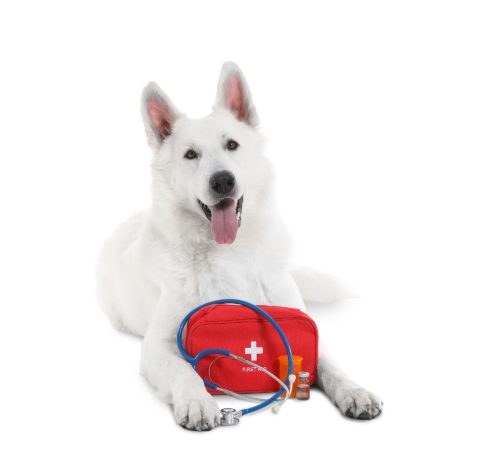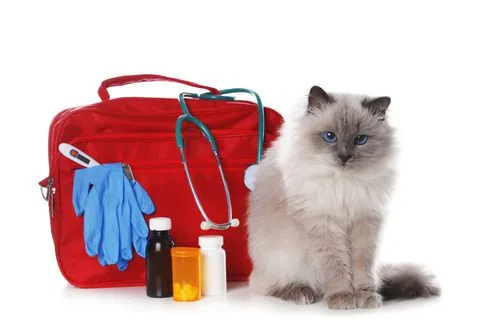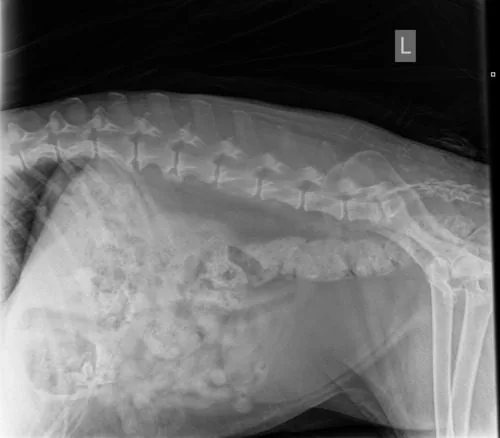Urgent Vet VS. Emergency Vet: What’s The Difference?
When a pet suddenly shows signs of illness or injury, the panic sets in quickly. Every second feels like an hour, and the first question that comes to mind is: “Where do I take them?” You might type “urgent vet vs emergency vet” into your search bar, hoping for clarity in the middle of the chaos. The terms sound similar, but there are key differences in the types of care each provides. Knowing which one to choose can help you act confidently and get your pet the right level of care quickly. Veterinary Healthcare Associates in Winter Haven, FL, is here to help pet owners make informed choices. This blog walks you through the differences between urgent and emergency veterinary care, what situations each is designed to handle, and how to know which option is right for your pet’s situation. If you’re ever unsure, call us directly at (863) 324-3340.

Defining Urgent Vet VS. Emergency Vet
The terms “urgent” and “emergency” are often used interchangeably, but they refer to different levels of medical concern. Understanding when to visit an urgent vet vs emergency vet can save valuable time and stress when your pet needs help.
What Is an Urgent Vet?
An urgent vet treats non-life-threatening medical issues that still require timely attention. Think of it as the veterinary equivalent of an urgent care clinic for people. These appointments address problems that can’t wait several days but don’t pose an immediate risk to your pet’s life or long-term health. Common examples include:
- Minor wounds or lacerations
- Persistent vomiting or diarrhea (without blood)
- Coughing or sneezing that’s getting worse
- Eye or ear infections
- Limping without major swelling or trauma
- Mild allergic reactions
Urgent vet care usually occurs during extended business hours or in clinics that offer walk-in services without the full setup of an emergency hospital. The goal is to quickly evaluate, treat, and stabilize your pet before the condition worsens.
What Is an Emergency Vet?
Emergency vets, such as those at Veterinary Healthcare Associates’ emergency vet and critical care center are trained to handle critical, life-threatening situations that demand immediate intervention. Emergency facilities operate 24/7 or during overnight and weekend hours when most general practices are closed. Emergency vet teams often include specialists and advanced equipment to manage severe trauma and complex conditions. Situations that call for emergency care may include:
- Difficulty breathing
- Seizures
- Unconsciousness
- Major trauma (e.g., hit by a car)
- Ingesting toxins or foreign objects
- Severe bleeding
- Sudden collapse or paralysis
In these cases, delaying treatment could lead to serious complications or even become fatal. Emergency clinics are equipped for rapid diagnostics, intensive care, and surgical intervention when needed.
Key Differences in Training, Equipment, and Staff
Another way to understand the difference between an urgent vet vs emergency vet is by looking at how each facility operates behind the scenes. From staff training to available technology, there are major differences in how these two services are set up to respond.
Staff Experience and Specialties
While both urgent and emergency vets are licensed professionals, emergency veterinary teams often include board-certified specialists in critical care, surgery, and internal medicine. Their expertise enables them to manage high-risk cases and make split-second decisions when time is limited. Urgent care teams are typically general practice vets or those with experience in treating common acute conditions. They excel in managing symptoms and providing relief while recommending follow-up care when needed.
Diagnostic Tools and Technology
Emergency facilities usually have a full range of advanced diagnostic tools, including:
- In-house bloodwork with rapid results
- Digital radiography and ultrasound
- Oxygen therapy units
- Surgical suites and intensive care units
Urgent care clinics may have some diagnostic capabilities but may not be equipped for overnight hospitalization or emergency surgery. If a pet’s condition worsens, they will often refer you to an emergency clinic.
When to Choose an Urgent Vet
Knowing when to take your pet to an urgent vet instead of an emergency hospital can prevent unnecessary stress and expense. If your pet’s condition seems stable but is causing clear discomfort or worsening slowly, urgent care is likely appropriate.
Situations Suitable for Urgent Vet Visits
You might consider an urgent vet visit if your pet is:
- Scratching excessively and may have a skin infection
- Showing signs of a urinary tract infection
- Eating less than usual but still drinking water
- Limping without signs of major pain or injury
- Experiencing mild vomiting without blood or lethargy
Urgent care is a practical option for pet owners who need quick answers and treatment but don’t require a full-scale emergency response. It also helps reduce wait times at emergency clinics for more serious cases.
Benefits of Urgent Care
- Shorter wait times compared to emergency rooms
- Lower costs than 24-hour emergency hospitals
- Focused treatment for minor to moderate concerns
- Quicker access to care when your primary vet is unavailable
Still unsure whether your pet needs urgent or emergency care? Give us a call at (863) 324-3340, and we’ll help guide you.
When Emergency Veterinary Care Is the Only Option
Some symptoms and situations can’t wait, not even an hour. In these cases, heading straight to an emergency vet like Veterinary Healthcare Associates is the best choice. Delays can lead to worsening symptoms or complications that become harder to treat.
Signs That Call for Immediate Emergency Vet Care
Call Veterinary Healthcare Associates at (863) 324-3340 right away if your pet is experiencing:
- Seizures or tremors
- Heavy bleeding
- Difficulty breathing or blue gums
- Sudden loss of consciousness
- Hit by a car or fall from a height
- Ingestion of medications, chemicals, or poisonous foods
- Inability to urinate, especially in male cats
- Profuse vomiting or diarrhea, especially with blood
Even if you’re unsure whether the situation qualifies as an emergency, err on the side of caution. A phone call can help determine your next steps.
How Emergency Clinics Respond
Emergency veterinary clinics prioritize patients based on severity. Pets with life-threatening symptoms receive immediate attention, while stable patients may wait longer. Our team in Winter Haven uses triage to make quick decisions and ensure that each patient receives the care they need as quickly as possible.
How Urgent and Emergency Vets Work Together
While urgent and emergency veterinary services serve different roles, they often work in tandem to provide seamless care. In some cases, a pet may start at an urgent care clinic and be referred to emergency care if their condition worsens or requires overnight monitoring.
Coordinated Referrals and Follow-Up
Urgent care vets can refer your pet to an emergency hospital if additional treatment or observation is needed. Emergency clinics may also refer stable patients back to their primary vet or to urgent care once the immediate concern has passed. This collaboration ensures continuity of care and reduces gaps in treatment. It also helps prioritize resources, so pets get the most appropriate attention based on their condition.
What to Expect Financially from Each Type of Visit
Understanding the cost difference between urgent vet vs emergency vet visits can help pet owners prepare. Both types of care come with their own pricing structure, and knowing what to expect may ease the decision-making process.
Urgent Vet Visit Costs
Urgent vet visits tend to be less expensive than emergency care. You’ll typically pay for the exam, diagnostic tests (if needed), and treatment. These visits often fall into a moderate range, especially when no extensive testing or hospitalization is required.
Emergency Vet Visit Costs
Emergency vet care is more intensive and priced accordingly. Services may include emergency exam fees, diagnostic imaging, bloodwork, IV fluids, hospitalization, and surgery. While these costs are higher, they reflect the advanced care and life-saving capabilities emergency teams provide.
Make Confident, Informed Decisions About Your Pet’s Care
When it comes to understanding the differences between an urgent vet vs emergency vet, the right decision depends on your pet’s symptoms and how rapidly their condition is changing. Knowing the difference ahead of time gives you the confidence to act quickly and appropriately in the moment. Veterinary Healthcare Associates in Winter Haven, FL, is here to support your pet’s health during emergency situations. If you’re ever in doubt, call us at (863) 324-3340 for guidance. We’ll help determine the best course of action for your pet’s needs.
Recent Posts
When is Dog Diarrhea an Emergency?
When is Dog Diarrhea an Emergency? Dog owners know all too well that occasional digestive upset isn’t…
Is Cat Constipation an Emergency?
Is Cat Constipation an Emergency? Cats are often private about their habits, especially when it comes to…
Feline Emergencies: Warning Signs Your Cat is Crying for Help
Feline Emergencies: Warning Signs Your Cat is Crying for Help Cats have a reputation for being independent,…
Spondylosis in Dogs: Symptoms, Treatment, & More
Spondylosis in Dogs: Symptoms, Treatment, & More If your dog is slowing down or showing signs of…
Dog Wobbler Syndrome: Symptoms, Diagnosis, & Treatment
Dog Wobbler Syndrome: Symptoms, Diagnosis, & Treatment Wobbly walking, a stiff neck, or an unsteady gait in…
About Veterinary Healthcare Associates
Veterinary Healthcare Associates in Winter Haven, FL, was established over 30 years ago as Maxwell Animal Clinic by Dr. John Maxwell. Maxwell Animal Clinic was a one-doctor general practice offering preventive care, dentistry, and standard surgical services to the community. As the years passed, Maxwell Animal Clinic evolved into a thriving 10-doctor general, specialty referral, and emergency veterinary practice.








